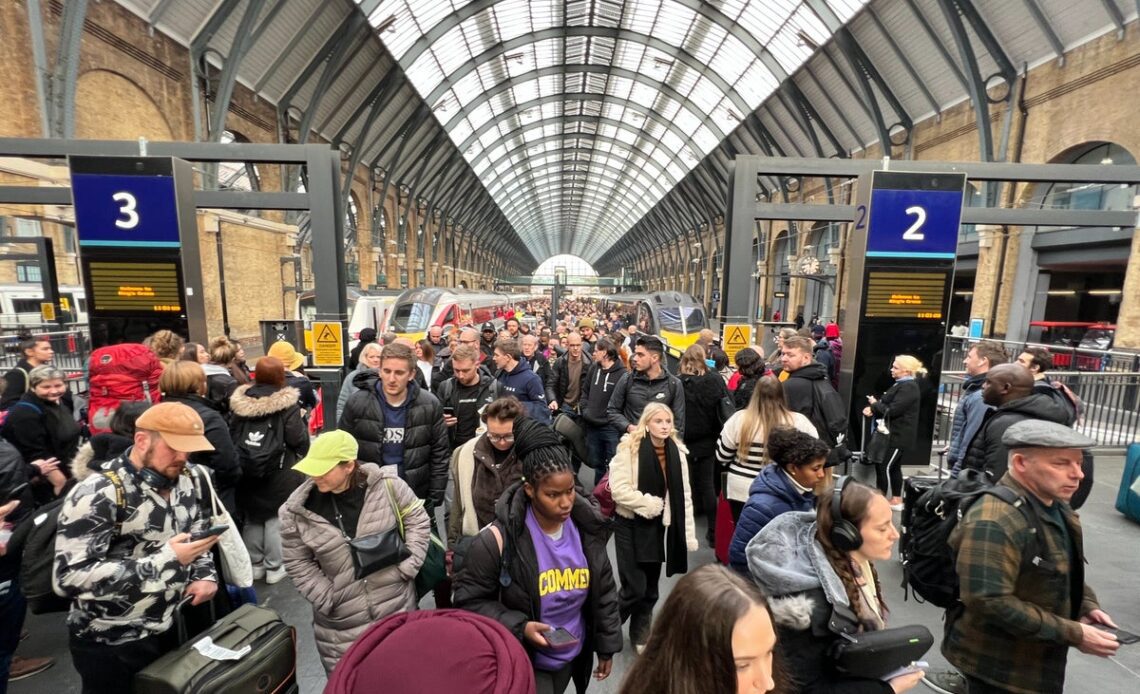Rail passengers in Britain are enduring the longest and most damaging series of strikes since the 1980s.
The bitter dispute between the rail unions, Network Rail and the train operators is about to enter its seventh month – with planned disruption unmatched this century set for before Christmas and after New Year.
The dates are 13-14 and 16-17 December, and 3-4 and 6-7 January.
Between the pre-Christmas and post-New Year strikes, from 18 December to 2 January, an overtime ban will be in place.
If the stoppage goes ahead it will constitute the biggest sustained industrial action on the railways since 1989.
So far this year the RMT has called 11 days of national strikes. In October three days of walk-outs were called off at short notice, but widespread disruption was still felt over the course of a week.
In addition, white-collar staff for many train operators and Network Rail plan industrial action, while Eurostar security staff have announced a pre-Christmas walk-out.
Train drivers working for around a dozen rail firms – including intercity giants Avanti West Coast, GWR and LNER – have so far staged five days of national action.
Regionally, a range of industrial action from overtime bans to local walk-outs are causing further disruption, while Eurostar could be hit by a strike by security staff on the busiest days before Christmas.
What are the strikes about?
There are multiple disputes involving many employers:
- Network Rail – the infrastructure provider, running the tracks, signalling and some large stations
- Fourteen train operators, who are contracted by the Department for Transport (DfT) to run specified schedules.
Four unions are involved:
- RMT, the main rail union
- Aslef, representing train drivers
- Transport Salaried Staffs’ Association (TSSA), the union for white-collar staff in the transport industry
- Unite, representing some grades in some train operators
But key elements are common to all the disputes:
- Pay, which the unions say should take into account the current high inflation
- Jobs, and in particular the prospect of compulsory redundancies
- Working conditions – with the unions determined to extract a premium from any productivity improvements, but the employers saying any pay rise is contingent on modernisation
In addition, the RMT says members are “striking against proposed cuts that would make the railways permanently…
Click Here to Read the Full Original Article at The Independent Travel…
